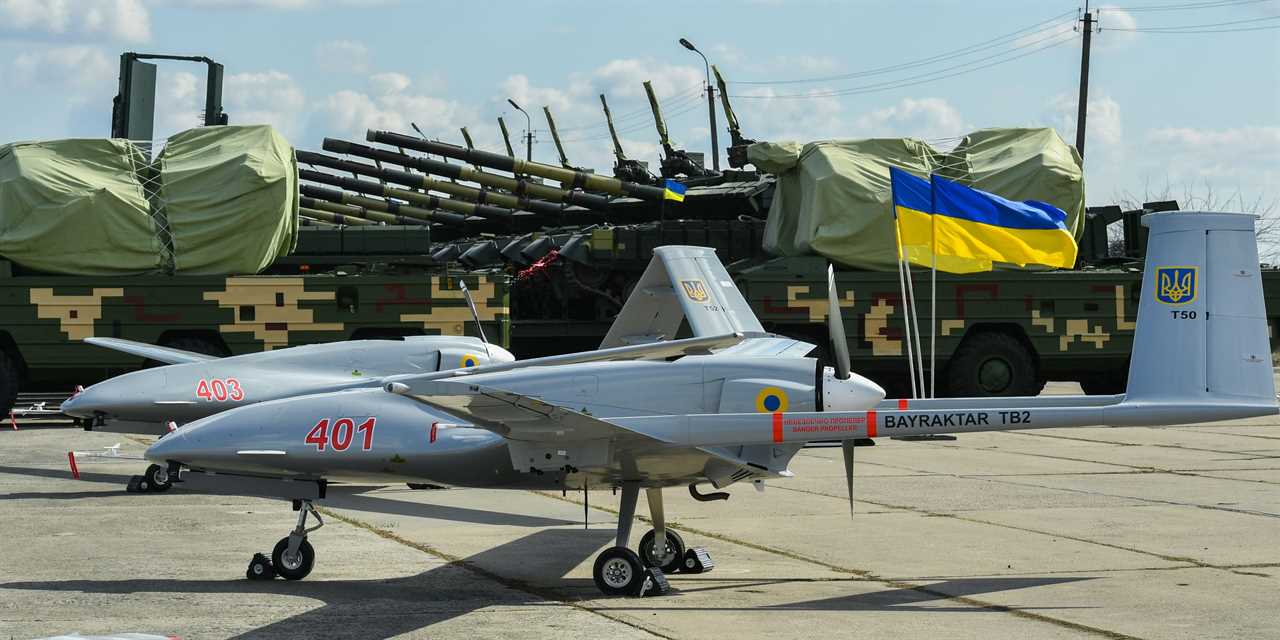
Press Office of the President of Ukraine / Mykola Lararenko / Handout/Anadolu Agency/Getty Images
- Turkey's Bayraktar TB2 drone has been praised for its performance against Russia in Ukraine.
- But Turkey has also deployed or sold the drone in a way that runs counter to US interests.
- That reflects how US and Turkish foreign policies have diverged in several areas in recent years.
Turkey's battle-tested Bayraktar TB2 combat drone has solidified its reputation since spring 2022, when Ukrainian troops began using it to devastating effect against Russian forces advancing on Kyiv.
In recent days, however, Turkey has again shown how its TB2s can threaten the interests of the US and its partners, especially in the Middle East, where Ankara and Washington have divergent perspectives on and objectives for some of the region's conflicts.
Turkey has supplied at least 50 TB2s to Ukraine since 2019, though many of them have been delivered since Russia launched its ill-fated invasion last year. Its effectiveness against Russian forces has made it a symbol of resistance celebrated widely by Ukrainians.
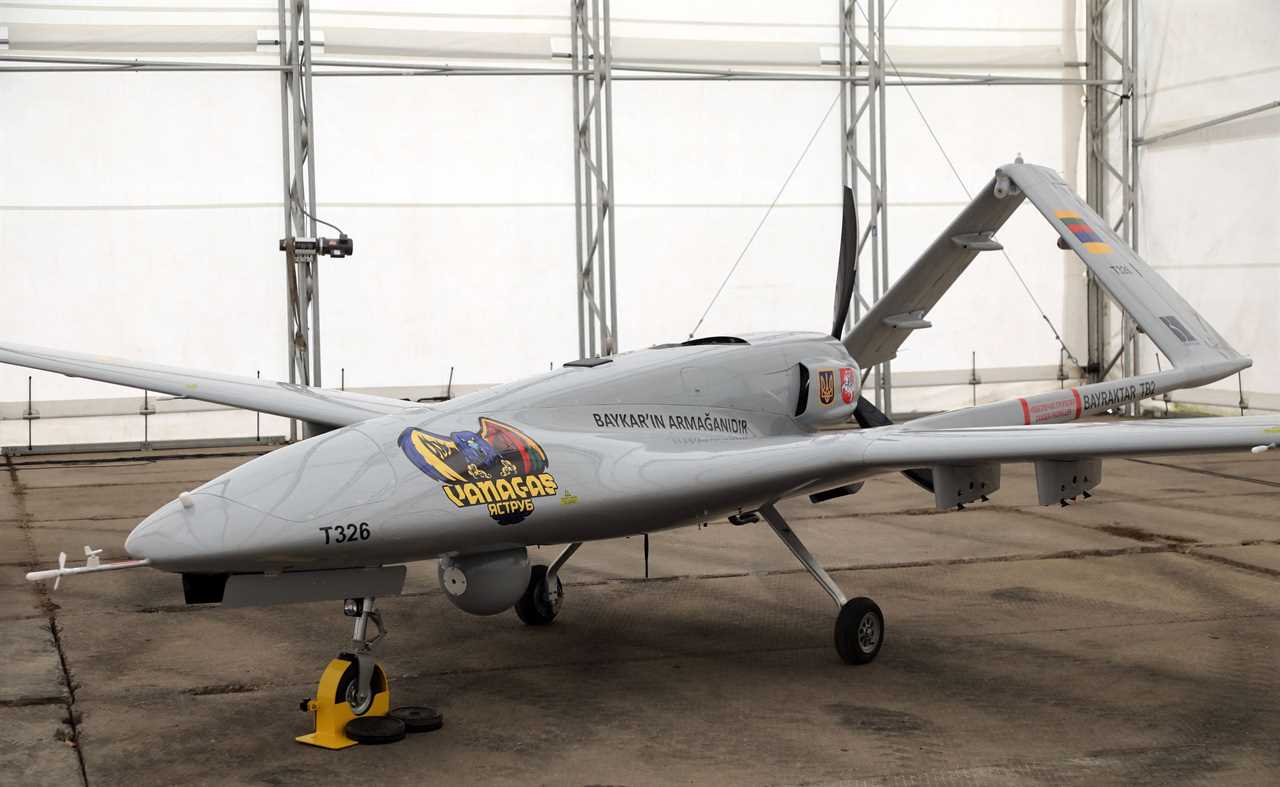
Petras Malukas/Getty Images
The TB2's performance in Ukraine has inspired merchandise and even songs and generated international crowdfunding campaigns to buy more of them to Kyiv. The manufacturer, Baykar, even agreed to gift Ukraine one TB2 free of charge after Lithuanians raised $6.3 million to pay for it.
The drone's designer said the TB2's success early in the Ukraine war meant "the whole world" had become a customer for the TB2, and its export success is undeniable. The company has a growing waitlist and at least 30 countries had ordered the drone as of 2023.
Russia's military has been able to counter the TB2. Adjustments in its use of air defense and electronic warfare helped it destroy at least one-third of Ukraine's TB2 fleet, but recent footage showing a TB2 targeting Russian ground and naval forces underscores the drone's continued utility for Ukraine.
TB2 shoot-down
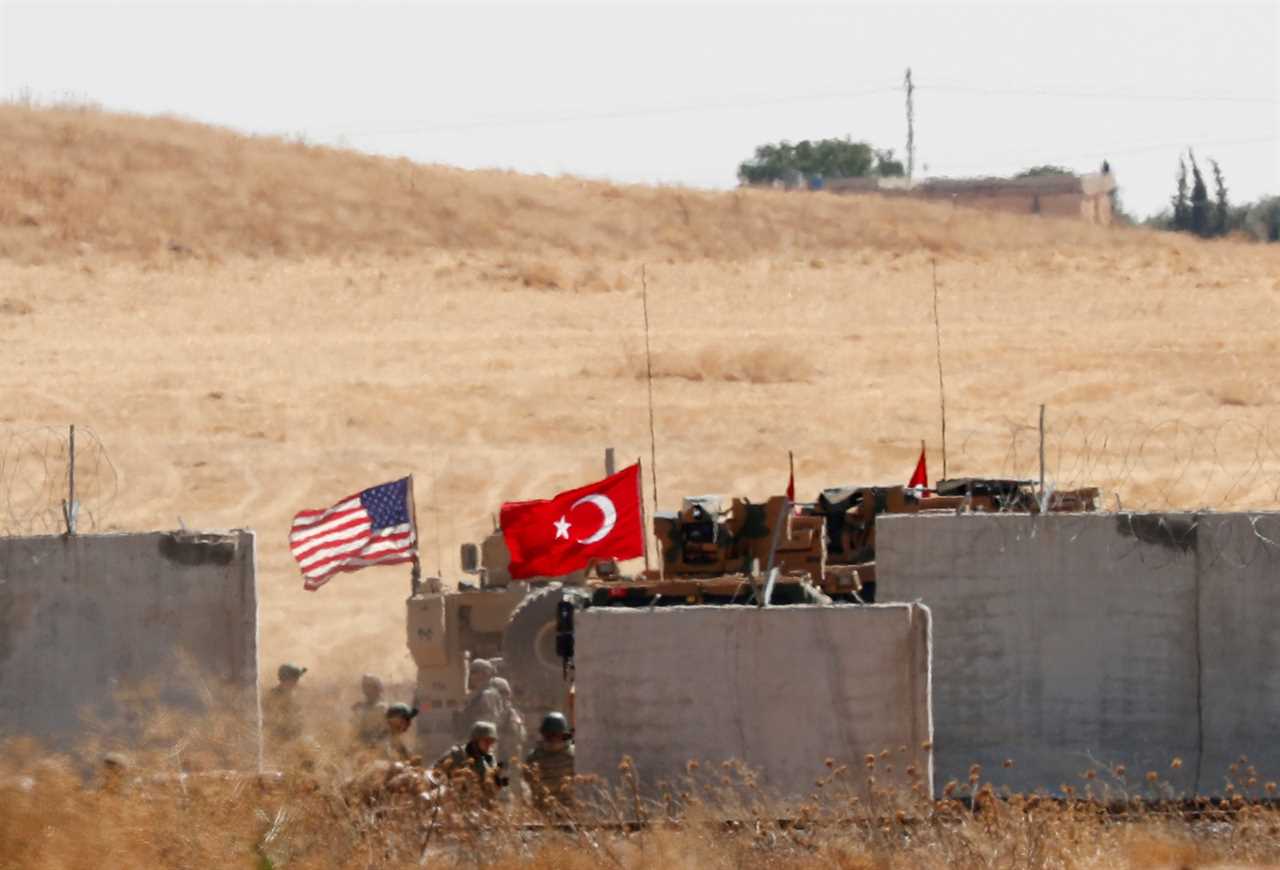
Reuters
The US no doubt supports Turkish drone sales to Ukraine and welcomes the TB2's success against Russian forces.
On the other hand, Washington has had concerns over other countries to which Turkey has sold TB2s. For example, Ankara supplied TB2s to Azerbaijan, which used them against Armenian forces in the Second Nagorno-Karabakh War in 2020. In 2021, the US took issue with Turkey's sale of TB2 armed drones to Ethiopia during the Tigray War.
Turkey and the US have also consistently butted heads in northeastern Syria, where Turkish drones have repeatedly targeted the US's leading local partner against ISIS — the Kurdish-led Syrian Democratic Forces, which Turkey views as an extension of its arch-foe, the Kurdistan Workers' Party, or PKK — and have killed innocent civilians, including children.
While Ankara's drone campaign in Syria is nothing new, it has intensified in recent weeks. Following a suicide bombing in Ankara on October 1 that was claimed by the PKK, Turkey ratcheted up its strikes across northeastern Syria, damaging an estimated half of the oil and electricity facilities in the region and cutting off electricity for its beleaguered residents.
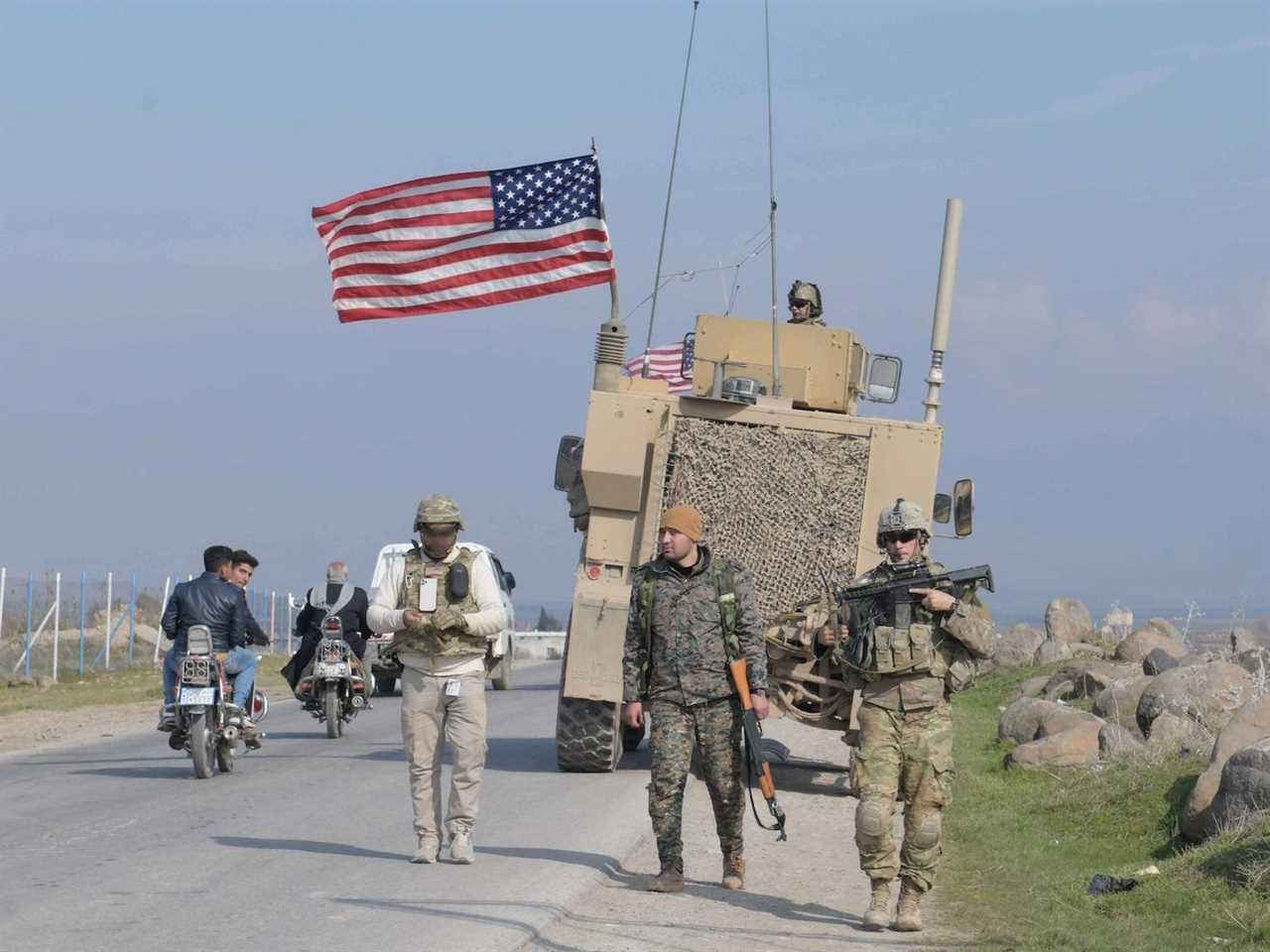
US Army/Staff Sgt. Jodi Eastham
On October 5, a Turkish drone bombing Kurdish targets came within about 500 yards of US troops in a "declared US restricted operating zone" near Hasakah, chief Pentagon spokesman Brig. Gen. Pat Ryder, said that day. The drone, reportedly a TB2, was deemed a threat and shot down by a US F-16, though Ryder said the US had "no indication" it was targeting US troops.
Turkey initially denied the drone belonged to its military but later backtracked. In statement on October 6, the Turkish Foreign Ministry confirmed the loss of a drone "due to different technical assessments in the deconfliction mechanism with third parties."
The statement was undoubtedly a reference to the US, as Turkey's military has separate de-escalation mechanisms with Russia and the US and requires a green light from at least one before launching major operations in Syria, which are invariably against the SDF.
US Defense Secretary Lloyd Austin spoke to his Turkish counterpart after the shoot-down and "reaffirmed that the United States remains in Syria exclusively in support of the campaign to defeat ISIS," Ryder said in a statement, adding that Austin "underscored the importance of close coordination between the United States and Turkey to prevent any risk to US forces or the global coalition's defeat-ISIS mission."
'An unusual and extraordinary threat'
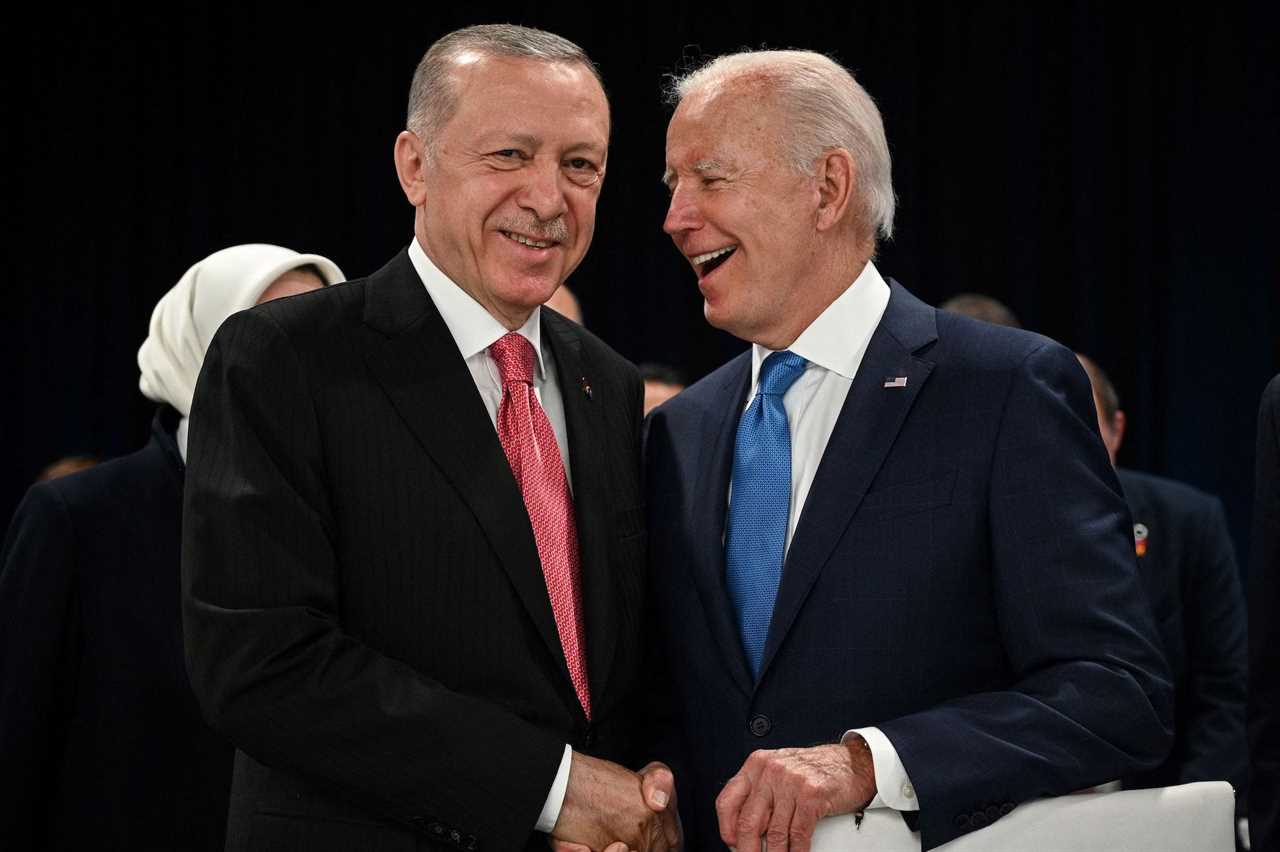
GABRIEL BOUYS/AFP via Getty Images
Despite such conciliatory statements, the US has said that Turkey's attacks on the SDF, including its current campaign, directly affect anti-ISIS operations.
On October 12, President Joe Biden extended a national emergency order on Syria declared by his predecessor, Donald Trump, following Turkey's October 2019 cross-border offensive against the SDF, authorizing sanctions against Turkish officials involved in that operation.
In a statement announcing the extension, Biden cited "actions by the Government of Turkey to conduct a military offensive into northeast Syria," which "undermines the campaign to defeat the Islamic State of Iraq and Syria, or ISIS, endangers civilians, and further threatens to undermine the peace, security, and stability in the region."
Those actions, Biden said, "pose an unusual and extraordinary threat to the national security and foreign policy of the United States."
The US government frequently touts its efforts to rally international support for Ukraine, and it undoubtedly welcomes the addition of Turkish TB2s Kyiv's arsenal. Conversely, in today's Middle East — where the divides between Turkey and its NATO allies are often on display — that very same drone is a hindrance or even a menace to the US's continued efforts to combat ISIS.
Paul Iddon is a freelance journalist and columnist who writes about Middle East developments, military affairs, politics, and history. His articles have appeared in a variety of publications focused on the region.
Read More
By: [email protected] (Paul Iddon)
Title: Turkey's drones are a big hit in Ukraine, but they're also showing how they can pose a threat to the US
Sourced From: www.businessinsider.com/turkey-bayraktar-drones-praised-in-ukraine-pose-threat-elsewhere-2023-10
Published Date: Tue, 17 Oct 2023 10:37:01 +0000
.png)





